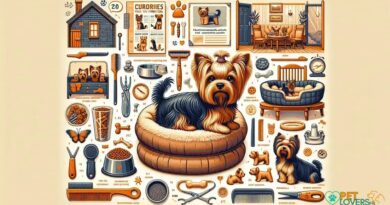What is grown-up dog care
Understanding Grown-Up Dog Care
Grown-up dog care refers to the comprehensive approach to maintaining the health and well-being of adult dogs. This stage of a dog’s life typically begins around one year of age, depending on the breed. Proper care during this phase is crucial as it lays the foundation for a long, healthy life. Owners must be aware of the specific needs of their adult dogs, including nutrition, exercise, and regular veterinary check-ups.
Nutrition for Adult Dogs
One of the most important aspects of grown-up dog care is providing a balanced diet tailored to the dog’s age, size, and activity level. Adult dogs require a diet rich in high-quality proteins, healthy fats, and essential vitamins and minerals. It’s essential to choose dog food that meets the standards set by the Association of American Feed Control Officials (AAFCO). Additionally, portion control is vital to prevent obesity, which can lead to various health issues.
Regular Exercise Requirements
Exercise is a critical component of grown-up dog care. Adult dogs generally need at least 30 minutes to two hours of physical activity each day, depending on their breed and energy levels. Regular exercise helps maintain a healthy weight, supports cardiovascular health, and provides mental stimulation. Activities can include walks, playtime in the yard, or engaging in dog sports. Owners should tailor exercise routines to their dog’s preferences and physical capabilities.
Routine Veterinary Check-Ups
Regular veterinary visits are essential for monitoring the health of adult dogs. These check-ups typically occur annually but may be more frequent for older dogs or those with health issues. During these visits, veterinarians perform physical examinations, update vaccinations, and conduct tests for common health problems. Preventative care, including dental cleanings and parasite control, is also a crucial part of grown-up dog care.
Grooming Needs
Grooming is another vital aspect of grown-up dog care that varies by breed. Regular brushing helps to remove loose fur, dirt, and debris, while also promoting healthy skin and coat. Some breeds may require professional grooming services, including haircuts and nail trimming. Bathing should be done as needed, using dog-specific shampoos to avoid skin irritation. Grooming is not only about aesthetics; it also allows owners to check for skin issues or abnormalities.
Behavioral Training and Socialization
Behavioral training and socialization are crucial components of grown-up dog care. Adult dogs should continue to engage in training to reinforce good behavior and prevent issues such as aggression or anxiety. Socialization with other dogs and people is equally important, as it helps dogs develop confidence and reduces fear-based behaviors. Positive reinforcement techniques are highly effective in training adult dogs.
Understanding Health Issues
As dogs age, they may become susceptible to various health issues, including arthritis, diabetes, and heart disease. Being aware of the signs and symptoms of these conditions is essential for early detection and treatment. Regular veterinary check-ups and open communication with a veterinarian can help manage these health concerns effectively. Owners should also educate themselves about breed-specific health issues that may affect their dogs.
Creating a Safe Environment
Providing a safe living environment is a fundamental aspect of grown-up dog care. This includes ensuring that the home is free from hazards such as toxic plants, chemicals, and small objects that could be swallowed. Additionally, creating a comfortable space for the dog to rest and relax is essential. Owners should also consider securing their yard to prevent escapes and protect their dogs from potential dangers.
Understanding Aging in Dogs
As dogs enter their senior years, their care needs may change. Owners should be aware of the signs of aging, such as decreased energy levels, changes in appetite, and mobility issues. Adjusting the diet, exercise routine, and veterinary care to accommodate these changes is crucial for maintaining the quality of life for senior dogs. Providing extra comfort, such as orthopedic beds, can also help support aging joints.
Emotional Well-Being
Emotional well-being is an often-overlooked aspect of grown-up dog care. Adult dogs thrive on companionship and mental stimulation. Engaging in interactive play, providing puzzle toys, and spending quality time with their owners can significantly enhance a dog’s emotional health. Recognizing signs of stress or anxiety and addressing them promptly is essential for a happy and healthy adult dog.



